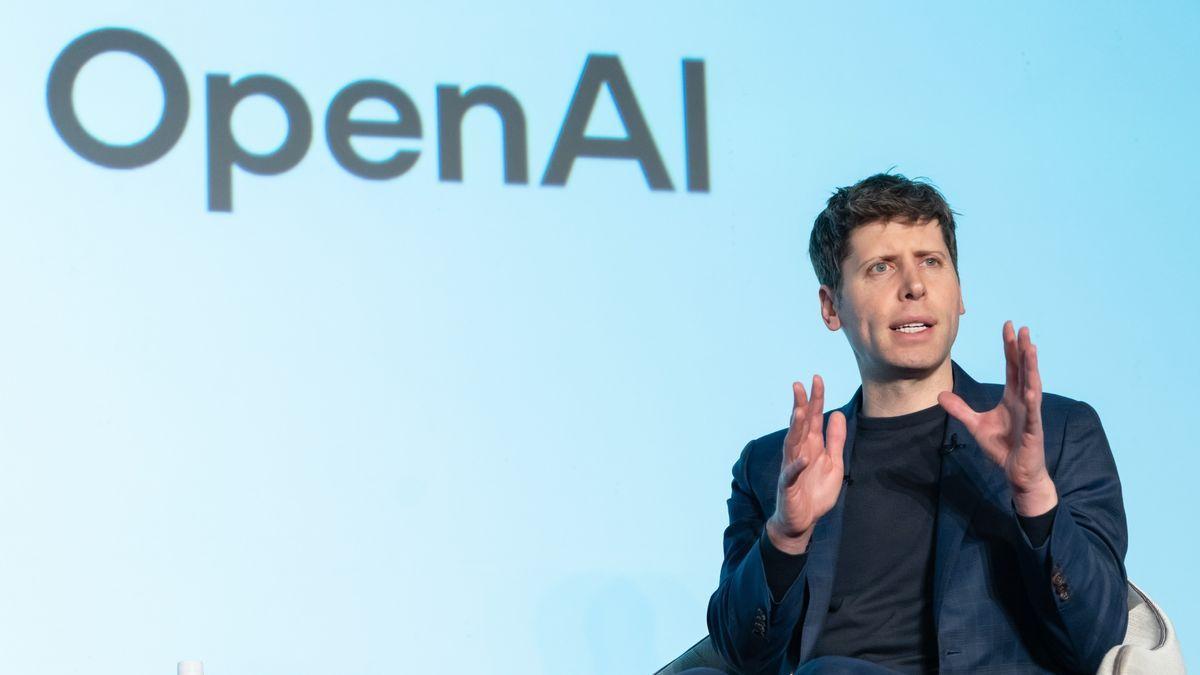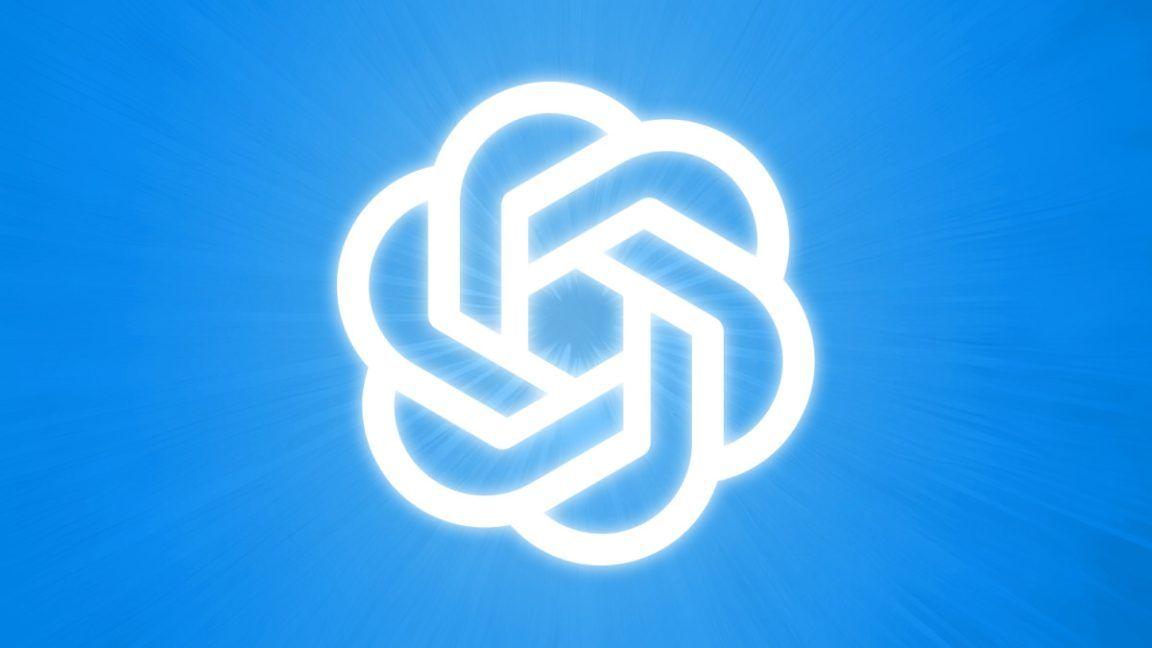OpenAI CEO Sam Altman Expresses Concerns Over GPT-5's Rapid Advancement
2 Sources
2 Sources
[1]
OpenAI's CEO Sam Altman says GPT-5 is so fast it actually scares him -- 'maybe it's great, maybe it's bad, but what have we done?'
Sam Altman has claimed the next stage of ChatGPT's development is so fast and powerful, it's left him genuinely scared. Altman's comments come from his appearance on the This Past Weekend with Theo Von podcast, where he also suggested AI conversations should have legal confidentiality. OpenAI CEO Sam Altman: "It feels very fast." - "While testing GPT5 I got scared" - "Looking at it thinking: What have we done... like in the Manhattan Project"- "There are NO ADULTS IN THE ROOM" from r/ChatGPT The OpenAI CEO is clearly on the war path ahead of ChatGPT's imminent GPT-5 upgrade, which we expect to launch in August. Confirming on the show the new model "feels very fast", Altman went on to compare its development to the Manhattan Project and said he felt nervous and scared over what he'd helped build. In addition, Altman -- who has been running OpenAI since 2019 -- claimed the lightning pace of AI is far outpacing any oversight that could be put in place and that it feels like "there are no adults in the room". The OpenAI CEO wasn't pushed on exactly what part of ChatGPT's next stage gave him the most cause for concern, and he didn't share any technical details on what users could expect. But citing such a historical example like this doesn't inspire much confidence that OpenAI is firmly in control of its creation. "There are moments in the history of science, where you have a group of scientists look at their creation and just say, you know: 'What have we done?'" Altman told the host. "Maybe it's great, maybe it's bad, but what have we done?" This isn't the first time that Sam Altman has acknowledged his fears over the growth of the AI industry. OpenAI has the likes of Google and Microsoft snapping at its heels and Altman probably knows GPT-5 will be the cornerstone of keeping those competitors at bay for the rest of the year. A cynic may say Altman's comments are a calculated move to drive more people to use GPT-5 when it finally does arrive. And there's no doubt ChatGPT's paid-for subscriptions will get plenty of new features to make them even more appealing. But given Altman's proximity to the epicenter of AI development, if his comments are genuine they should be cause for concern. In addition to being faster, GPT-5 should be proficient at multi-step processes and possess a longer memory window. So while you'll get your answer faster, you'll also be able to link elements of developing a project together more seamlessly. When you consider GPT-5 will also have better multimodal input and allow users to integrate voice, images, graphics and files alongside standard text, you can see how potentially powerful it will be. But still, a comparison to the Manhattan Project is probably not what everyone wants to hear right now.
[2]
OpenAI's CEO says he's scared of GPT-5
He warned that the rapid advancement of AI is happening without sufficient oversight OpenAI chief Sam Altman has painted a portrait of GPT‑5 that reads more like a thriller than a product launch. In a recent episode of the This Past Weekend with Theo Von podcast, he described the experience of testing the model in breathless tones that evoke more skepticism than whatever alarm he seemed to want listeners to hear. Altman said that GPT-5 "feels very fast," while recounting moments when he felt very nervous. Despite being the driving force behind GPT-5's development, Altman claimed that during some sessions, he looked at GPT‑5 and compared it to the Manhattan Project. Altman also issued a blistering indictment of current AI governance, suggesting "there are no adults in the room" and that oversight structures have lagged behind AI development. It's an odd way to sell a product promising serious leaps in artificial general intelligence. Raising the potential risks is one thing, but acting like he has no control over how GPT-5 performs feels somewhat disingenuous. OpenAI CEO Sam Altman: "It feels very fast." - "While testing GPT5 I got scared" - "Looking at it thinking: What have we done... like in the Manhattan Project"- "There are NO ADULTS IN THE ROOM" from r/ChatGPT What spooked Altman isn't entirely clear, either. Altman didn't go into technical specifics. Invoking the Manhattan Project is another over-the-top sort of analogy. Signaling irreversible and potentially catastrophic change and global stakes seems odd as a comparison to a sophisticated auto-complete. Saying they built something they don't fully understand makes OpenAI seem either reckless or incompetent. GPT-5 is supposed to come out soon, and there are hints that it will expand far beyond GPT-4's abilities. The "digital mind" described in Altman's comments could indeed represent a shift in how the people building AI consider their work, but this kind of messianic or apocalyptic projection seems silly. Public discourse around AI has mostly toggled between breathless optimism and existential dread, but something in the middle seems more appropriate. This isn't the first time Altman has publicly acknowledged his discomfort with the AI arms race. He's been on record saying that AI could "go quite wrong," and that OpenAI must act responsibly while still shipping useful products. But while GPT-5 will almost certainly arrive with better tools, friendlier interfaces, and a slightly snappier logo, the core question it raises is about power. The next generation of AI, if it's faster, smarter, and more intuitive, will be handed even more responsibility. And that would be a bad idea based on Altman's comments. And even if he's exaggerating, I don't know if that's the kind of company that should be deciding how that power is deployed.
Share
Share
Copy Link
Sam Altman, CEO of OpenAI, has voiced apprehension about the speed and power of the upcoming GPT-5 model, comparing its development to the Manhattan Project and highlighting the lack of adequate oversight in AI advancement.
OpenAI CEO Raises Alarms Over GPT-5's Rapid Development
Sam Altman, CEO of OpenAI, has sparked controversy with his recent comments about the upcoming GPT-5 model. During an appearance on the "This Past Weekend with Theo Von" podcast, Altman expressed genuine fear and concern over the rapid advancement of AI technology, particularly GPT-5
1
.
Source: Tom's Guide
Altman's Startling Comparisons
In a statement that has sent ripples through the tech community, Altman compared the development of GPT-5 to the Manhattan Project, saying, "There are moments in the history of science, where you have a group of scientists look at their creation and just say, you know: 'What have we done?'"
1
. This comparison to such a historically significant and controversial project has raised eyebrows and concerns about the potential impact of GPT-5.Lack of Oversight in AI Development
One of the most alarming aspects of Altman's comments was his assertion that the pace of AI development is far outstripping any attempts at oversight. He claimed that "there are no adults in the room," suggesting that the rapid advancement of AI technology is occurring without sufficient governance or control
2
.GPT-5's Anticipated Capabilities
While Altman didn't provide specific technical details, he hinted at significant improvements in GPT-5's capabilities. The new model is expected to be proficient at multi-step processes, possess a longer memory window, and offer better multimodal input, allowing users to integrate voice, images, graphics, and files alongside standard text
1
.Industry Reactions and Skepticism
Altman's comments have been met with mixed reactions from the tech industry and AI experts. Some view his statements as a genuine expression of concern, while others see it as a potential marketing strategy to generate buzz around the upcoming GPT-5 release
2
.Related Stories
Implications for AI Governance
The CEO's remarks have reignited discussions about the need for stronger AI governance and oversight. With OpenAI at the forefront of AI development, Altman's admission of fear and the lack of control over their creation raises important questions about the responsibility of tech companies in managing potentially powerful and disruptive technologies
2
.The Future of AI and OpenAI's Role
As OpenAI prepares to launch GPT-5, expected in August, the tech world watches with a mix of anticipation and apprehension. Altman's comments have underscored the complex challenges facing the AI industry, balancing rapid technological advancement with ethical considerations and potential risks
1
.While the true capabilities of GPT-5 remain to be seen, Altman's stark warnings serve as a reminder of the profound impact AI could have on society and the urgent need for responsible development and deployment of these powerful technologies.
References
Summarized by
Navi
[1]
[2]
Related Stories
Recent Highlights
1
ByteDance's Seedance 2.0 AI video generator triggers copyright infringement battle with Hollywood
Policy and Regulation

2
Demis Hassabis predicts AGI in 5-8 years, sees new golden era transforming medicine and science
Technology

3
Nvidia and Meta forge massive chip deal as computing power demands reshape AI infrastructure
Technology








